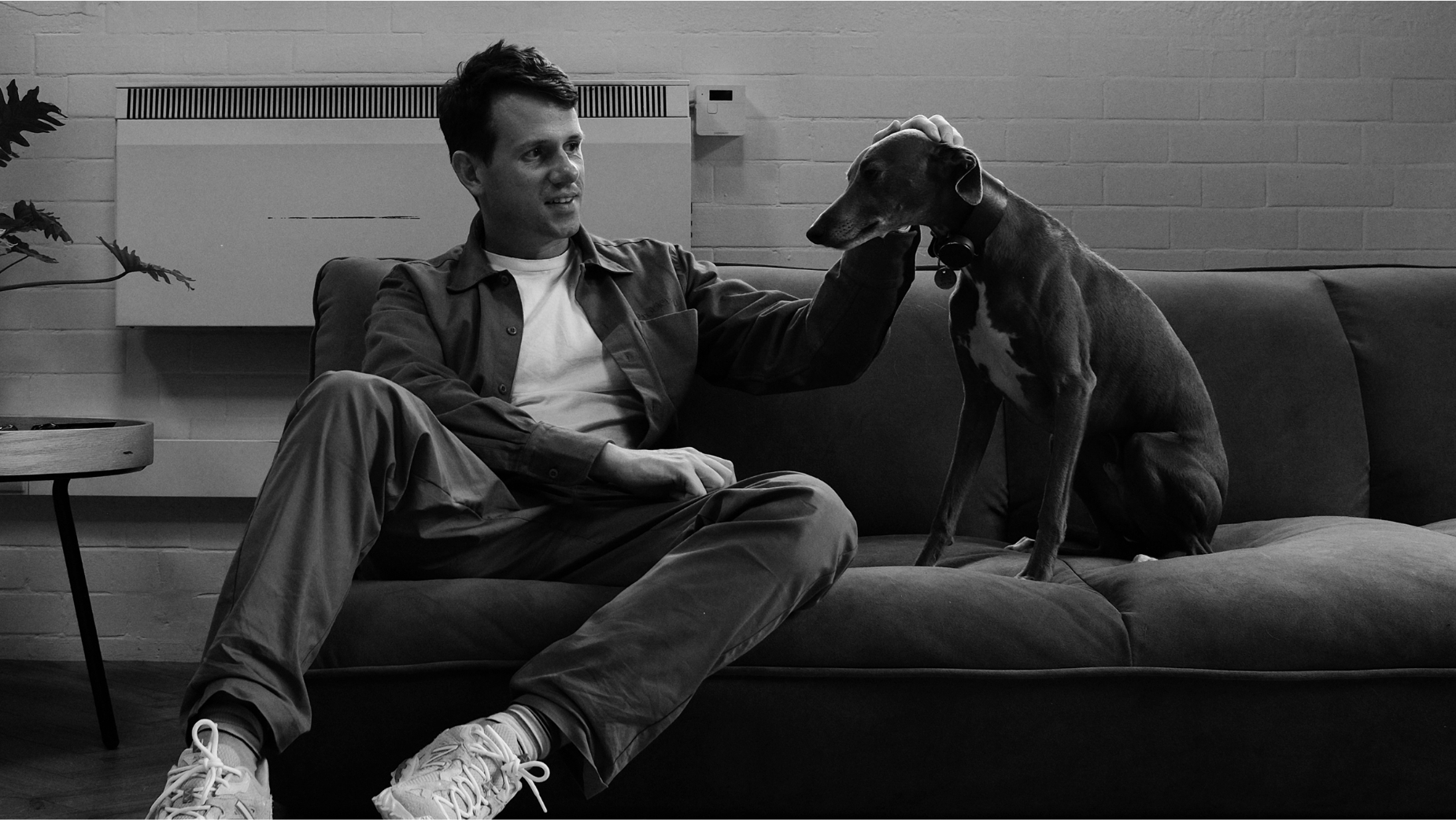
Bossing It: Why Leadership is All About the Team for Jack Newman

Jack Newman is the co-founder and managing director of Bullion Productions, a creative production studio with offices in London and Amsterdam. Bullion initially made its mark by producing award winning music videos, short-form branded content, and high-profile TV commercials.
Since joining the All3 Media family in 2019, Bullion has expanded its portfolio to include scripted comedy, and factual entertainment. Jack views the company as uniquely positioned at the intersection of advertising and television, and he is actively exploring new business opportunities in brand-funded programming. He is also a strong advocate for social and environmental responsibility, leading Bullion to achieve B-Corp certification in 2023.
Before founding Bullion, Jack built a successful career as a producer and cinematographer, working on award-winning projects for Vice, Partizan, and the BBC, among others.
Having worked his way up from a runner, he brings a deep appreciation for all industry roles, which informs his leadership style today.
LBB> How did you figure out what kind of leader you wanted to be – or what kind of leader you didn’t want to be?
Jack> I co-founded Bullion in my early 20s, so I think that makes me and my co-founders James and Ben some of the youngest prod co-owner/operators the industry has seen. 14 years on, I’m still learning and trying to figure out what kind of leader I want to be.
I remember learning early on when I was a runner at a well known production company what kind of leader I didn’t want to be – on one of my first days in the job I was told to get one of the executive producers their morning ritual coffee with a very specific order of a certain milk, heat, bean and process.
I was new to the elite coffee world and tried my best – but was sent back numerous times due to getting it wrong. I had nothing wrong with trying to get it right – it was just the attitude and way I was spoken down to which impacted me. I was trying my best, I just didn’t get it right and rather than teach me how to get it right I was told to bugger off.
Now, many years on and running my own company, I can happily say I’ve never come close to speaking to anyone that way and, when that said producer interviewed for a freelance job with us, I had my turn telling them (somewhat more politely) to bugger off. The moral to this story - I always try and treat everyone with the same respect. You never know, they might end up being your boss some day.
LBB> What experience or moment gave you your biggest lesson in leadership?
Jack> When I was making documentaries at Vice in its heyday, I learned a lot. We were working in a lot of stressful and hostile environments. I was lucky enough to travel to interesting and dangerous places like the Democratic Republic of Congo, Pakistan, Venezuela, Russia and more.
On those jobs you collectively had to always think a step ahead, have a plan B and C and most importantly stay calm and diplomatic. When you have a gun pointing in your face or you have been arrested by a government force you don’t stand up and ‘lead’ in the traditional sense. It's all about diplomacy, listening and trying to de-escalate a situation. Now in my day to day life stressful situations at work don’t really compare which helps me keep calm and bringing that presence and listening to situations is a great leadership skill.
LBB> Did you know you always wanted to take on a leadership role? If so how did you work towards it and if not, when did you start realising that you had it in you?
Jack> We started Bullion as a collective of creative mates. The whole aim starting out was to make cool projects and support each other to grow. Things went very well from the outset and we had a lot going on, too much in fact and we needed to define our roles – I tended to take the lead in business situations, so took on the MD role. However, despite having the title of managing director – Ben, James and I as three founders are very close and consult each other all the time on decisions in the business. It works really well.
LBB> When it comes to 'leadership' as a skill, how much do you think is a natural part of personality, how much can be taught and learned?
Jack> I think it is both. You might naturally gravitate towards leadership as part of your personality, but it‘s through (sometimes difficult) lessons that you hone the important skills. Having well rounded experiences in different situations with different types of people really helps this. I love travelling and working with people from different countries and cultures has helped me become a better-rounded person.
LBB> What are the aspects of leadership that you find most personally challenging? And how do you work through them?
Jack> Being a good leader really has very little to do with me, it’s about surrounding yourself with talented people and then being there to hear them and support them, making sure they have the tools they need to be their best. I’ve definitely observed that what bad leaders have in common is they make leadership all about themselves. I strongly believe good leadership just is not about me, it’s about how I respect the people around me.
LBB> Have you ever felt like you've failed whilst in charge? How did you address the issue and what did you learn from it?
Jack> It's true what they say. I’ve learned so much more from my failures than my wins, and I’ve made failure my friend. You don’t become a good leader by winning all the time. You become a good leader by failing, learning to take the knock, getting up again and doing it better the next time.
In such a fast-paced environment where you need to be able to make decisions quickly, you have to accept you are going to get a few things wrong. Decision fatigue is a real thing in this role and I’ve learned to recognise it’s one of the first signs of burn out. In the past I’ve seen the signs and pushed through them and this helps no one. The failure to look after myself and to take a break is probably one of my biggest failures.
I don’t ignore the signs anymore, I put my hand up and say I need a break and my partners immediately say yeah man, go, we’ve got you.
LBB> In terms of leadership and openness, what’s your approach there? Do you think it’s important to be as transparent as possible in the service of being authentic? Or is there a value in being careful and considered?
Jack> As an MD, it’s so much about what you don’t say. There’s a lot of biting your tongue and listening to understand. I’ve always been told I’m a good listener and I’ve always been more than okay to stand back from the spotlight and watch other people shine in the light. There is a time to be open and honest, but often times I wait until I’m asked. If there’s one thing I’ve learned, it’s people receive an opinion much more readily if you’ve been invited to give it.
LBB> In continually changing market circumstances, how do you cope with the responsibility of leading a team through difficult waters?
Jack> It's a serious challenge. The industry is changing so quickly at the moment and often you have rely on your gut to make a decision. There is a lack of data or proven ways of working when you are trying out something new. If it doesn’t work, you need to put your hands up quickly, admit it is wrong and move on fast and learn. “Adapt or die” as they say.
Also, as you are working with creative people, you also need to keep in check peoples’ emotions, egos and personalities. You need the whole team behind you and believing it, otherwise it will fail.
LBB> As a leader, what are some of the ways in which you’ve prioritised diversity and inclusion within your workforce?
Jack> Diversity and inclusion, social responsibility and environmental impact are all core parts of Bullion’s DNA. These areas are always at the forefront of our minds, and how we can continue improving is crucial to our evolution as a company.
When it comes to D&I we actively work to achieve better representation and opportunities for people in underserved areas - both in-front and behind the camera - from paid shadow roles on set to working with organisations such as Change the Lens, The Kusp, Girls in Film, Just Runners and many more.
In 2023, Bullion became a certified B-Corporation. We are super proud of this and like to shout about it. It was a two year process to get certified and you can see our high score of 114.5% here. We are one of very few production companies to have the honour of being certified.
This means Bullion meets the highest standards of verified social and environmental performance, public transparency and legal accountability to balance profit and purpose. In short, we care about people and the planet.
LBB> How important is your company culture to the success of your business? And how have you managed to keep it alive with increases in remote and hybrid working patterns?
Jack> When we started Bullion 14 years ago in our mid/late 20s, we worked hard and played hard.
The company was very much our lifestyle, we lived and breathed it and it was important to have people around you that had the same drive and mindset. Then as we have matured the business has too.
Covid and remote working has obviously affected the way everyone works, but now we do three days a week in the office together and then the choice of working from home for two days. We recognise that for some jobs working from home can be advantageous, but with creative and production its better to be in the same room.
Also to create a renewed company culture you need to be together and those days in the office are important for that. We have also given more responsibility to the wider team to organise team nights out and ad hoc events. We want everyone to own and create the company culture.
LBB> What are the most useful resources you’ve found to help you along your leadership journey?
Jack> My most useful resources without a doubt are good friends, family and a very supportive partner. Balance is the key. Oh and Luca my Whippet who is my best sounding board.















